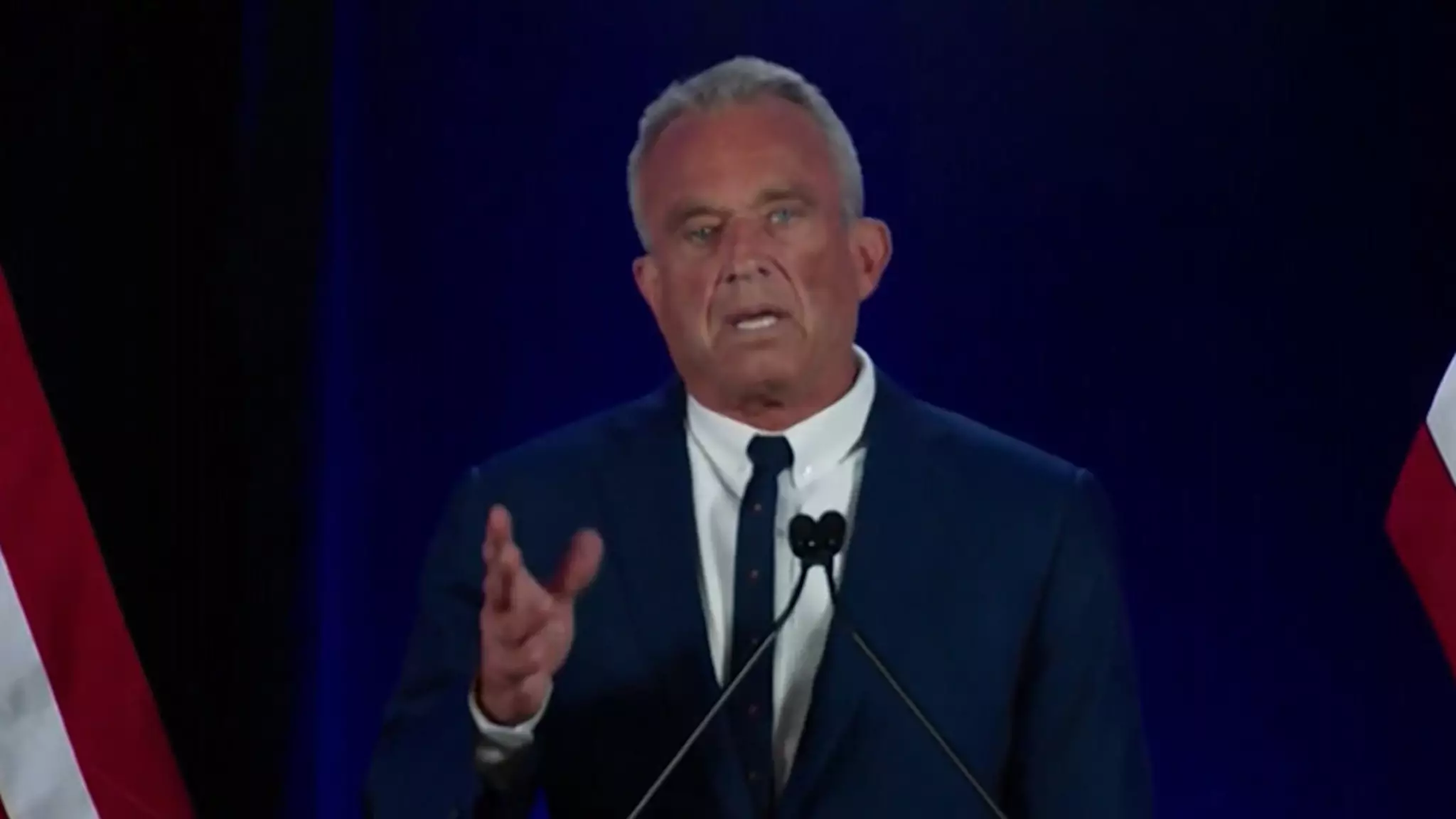Robert F. Kennedy Jr.’s third-party campaign has faced significant challenges in certifying the required signatures to appear on various state ballots. While he managed to qualify for 23 state ballots, his campaign has encountered legal obstacles in other states. This struggle to secure a spot on the ballot raises questions about the logistical preparedness and organizational capacity of his campaign.
Despite his efforts to challenge Republican nominee Donald Trump and President Joe Biden to a debate, Robert F. Kennedy Jr. was unable to secure a spot on the debate stage. This failure highlights the difficulty independent candidates face in gaining visibility and competing with candidates from major parties. It also calls into question the effectiveness of his campaign’s communication strategy and ability to garner support from a wider audience.
Robert F. Kennedy Jr. has found himself embroiled in controversy due to his past actions and statements. His admission of orchestrating a prank involving a dead bear cub in Central Park in 2014 has drawn criticism and negative attention. Additionally, his association with conspiracy theories and inflammatory rhetoric on social media, such as being labeled a “Democrat ‘plant'” by Donald Trump, has damaged his credibility and raised concerns about his judgment and character.
The revelation that Robert F. Kennedy Jr. had been suffering from a parasitic brain infection that resulted in “brain fog” raises questions about his fitness to serve as President. Health issues can impact a candidate’s ability to perform the duties of the office and make sound decisions. Furthermore, personal scandals and controversies can overshadow a candidate’s policy proposals and detract from the focus on important issues facing the country.
Robert F. Kennedy Jr.’s campaign emphasized a platform of independence from the two-party system and corporate corruption. While this message may resonate with some voters disillusioned with mainstream politics, it may also alienate those looking for a candidate who can work within the existing political framework to address pressing issues. The focus on environmental issues, foreign intervention, border security, and middle-class concerns may not have been enough to attract a broad base of support needed to mount a successful presidential campaign.
Robert F. Kennedy Jr.’s campaign for the presidency has been marred by challenges, controversies, and missteps that have hindered his ability to gain traction and credibility as a viable candidate. From logistical hurdles to personal scandals, his campaign has struggled to make a meaningful impact on the national political landscape. Moving forward, it remains to be seen how he will navigate the aftermath of his decision to suspend his campaign and endorse Donald Trump, and whether he will be able to rebuild his reputation and political future.


Leave a Reply